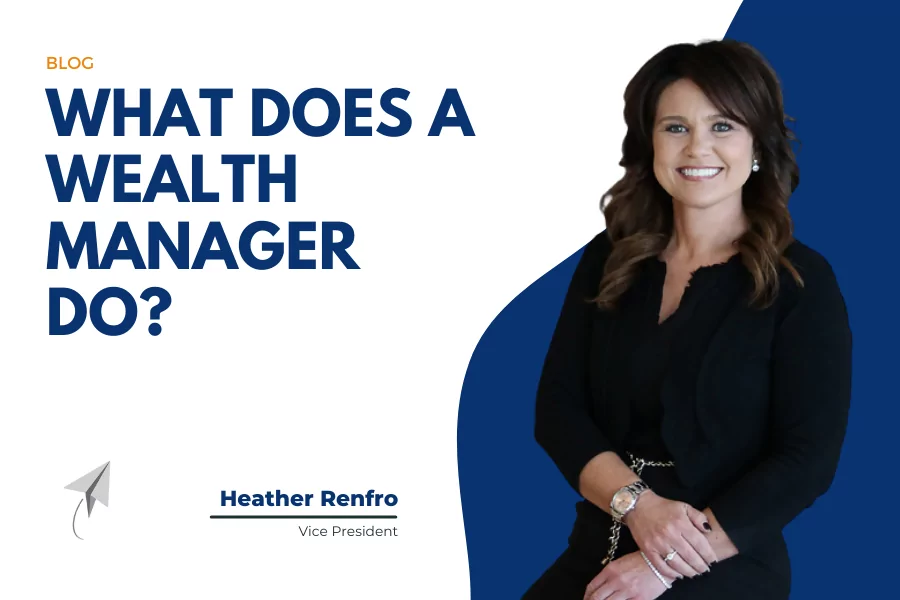No doubt you’ve heard of a wealth manager, but have you ever wondered what a wealth manager actually does? This is an increasingly relevant and fiduciary role held by professionals such as financial consultants, brokers, advisers, and so forth. Their job is to help you build, keep, and consume wealth. Let’s break down a wealth manager’s role a bit more:
Wealth Managers Help With Risk
One of the main reasons people seek wealth managers’ services is the desire to mitigate the amount of risk they incur through investment. Especially toward the end of a person’s life, after they’ve built a substantial nest egg, they no longer wish to make aggressive investment moves. Instead, they want to protect their investment, minimize risk, and conserve wealth via instruments such as slow/steady-growth investment instruments.
Conversely, somebody with a higher risk tolerance would be amenable to riskier investment vehicles like fast-growth stocks, derivatives, options, and so forth.
Risk management helps you avoid several obstacles that could impede your financial well-being, including:
- Lack of portfolio diversity
- Inflation
- High Taxes
- Market Risks (booms and busts in the stock market, for example)
- Temporary loss of income
- Concentration risk
Everyone has a varying degree of risk tolerance when it comes to money. Therefore, it’s important to obtain the help of a professional that would tailor a financial strategy to your specific needs.
Wealth Managers Help With Legacy Planning
In addition to handling life’s financial risks, there is the growth side of financial planning. This is encapsulated in legacy planning, which involves everything from starting an investment portfolio to growing it, as well as determining the best ways to spend and consume it. Here are some examples of how wealth managers do this:
- Retirement Planning
- Estate Planning
- Inheritance Tax Planning
- Insurance Management
- Philanthropy
- . . . and much more.
Retirement planning is not something an individual should attempt on their own without professional consultation. You wouldn’t draft a business contract without a lawyer, nor should you approach retirement alone. A trained financial consultant can help you determine your risk tolerance, how much money you need to retire, where to invest (equities, fixed income, real estate, private equity, mutual funds, ETFs, market indices, etc.), and ultimately what portion of it to withdraw during retirement.
Estate planning flows from the retirement objective. Before you die, you want to have your assets and wealth properly distributed according to your written will, which is a legal document that your wealth manager should help construct.
Another critical task is the selection of the most cost-effective insurance policies. This could include health and home insurance, but the big one is life insurance. A good financial adviser will assist you in choosing between whole and term life insurance by assessing the needs of your beneficiaries with regards to your overall wealth, how much they would need if you die prematurely, and how much longer you would generally expect to live.
Wealth Manager Help With Tax Planning
What about taxes? If you want to avoid excessive taxation, you should strongly consider hiring a professional who understands the best tax strategies. There are several financial mechanisms designed to lower your tax exposure. The purpose of most retirement instruments (401K, 403b,
Traditional IRA, etc.) is to shield you from or defer state and federal income taxes. This is merely kicking the can down the road. It may make financial sense to pay the tax now, in the current environment. Also, as it relates to estate planning, the “estate tax” is something a wealth manager can help mitigate.
Philanthropy is another great reason to employ a wealth manager. Once you’re able to secure economic freedom and security, you’ll probably want to bolster your charitable giving. This is a great ambition, but you should do so prudently because there are numerous ways to give and reduce your tax burden. Also, it pays to have somebody help you with discerning the most reputable groups for receiving your charitable giving.
Hire a Professional Wealth Manager
As you can see, there are several aspects to wealth management. This only scratches the surface of what a wealth management firm does for its clients. Hopefully, armed with this information, you now understand the role of a wealth manager, and what they can contribute to your personal financial growth. If you’d like to learn more about how a wealth manager can help you with your financial goals, contact a wealth advisor today for a consultation.


















